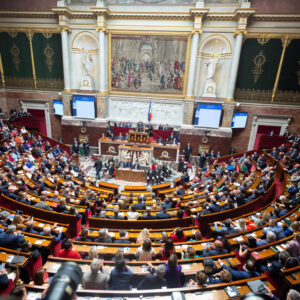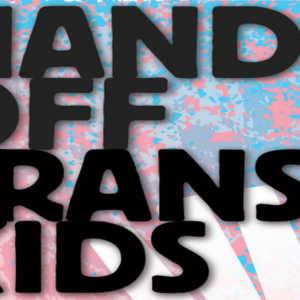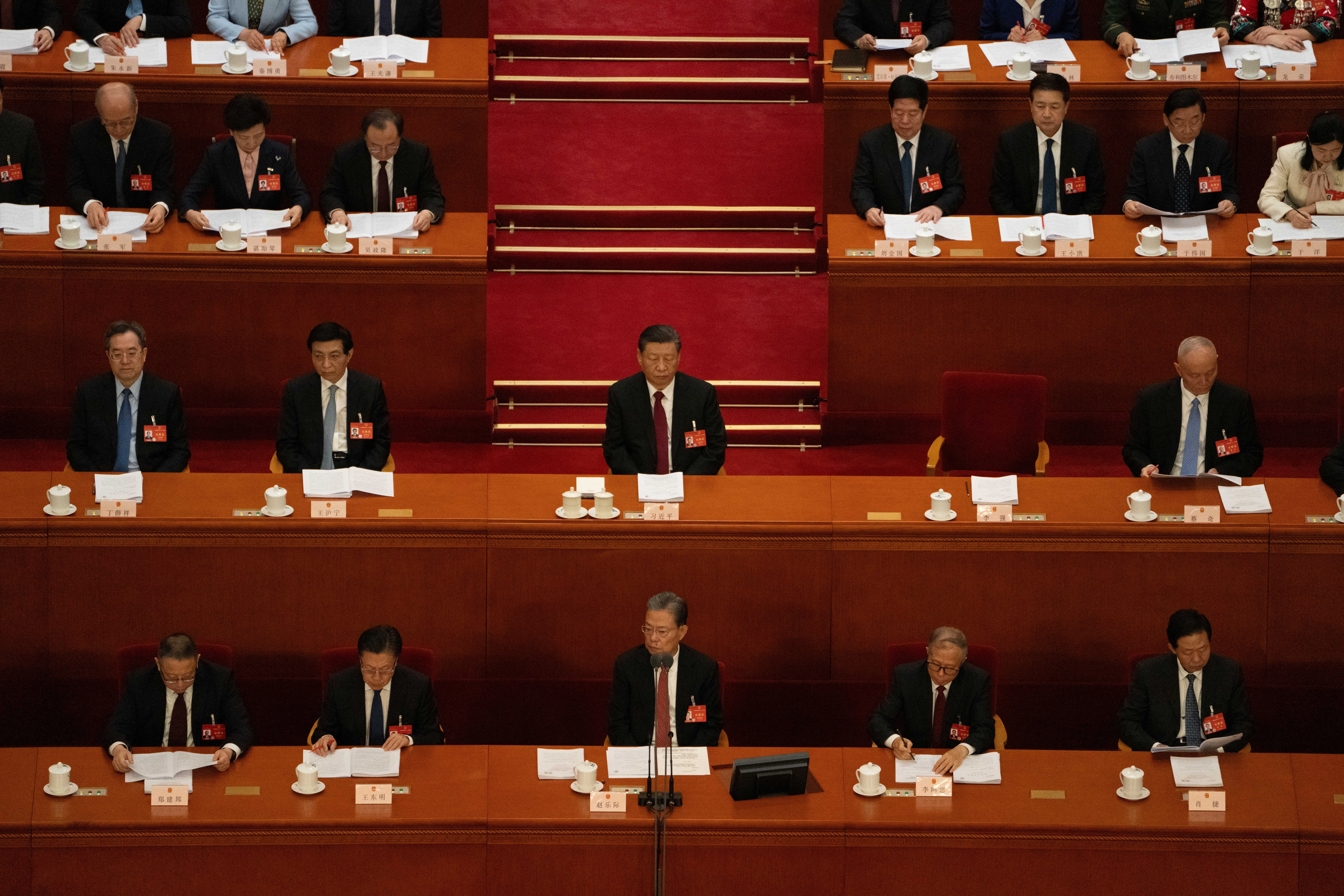Source >> Posle
“Anti-fascist resistance is an inspiring example of radical action. Among its participants there were many practicing Christians and priests everywhere. What was the Christian resistance in Nazi Germany and how does this example resonate with the Russian situation?
– Christian resistance was based on slightly different motivations than secular resistance. Christians in Germany at that time were dissatisfied with the attachment of the church to the state, and most importantly, they realized the impossibility of comparing what was written in the Gospel with what was happening around. We can recall the group “White Rose” – students of the University of Munich, who in 1942-43. wrote anti-Nazi leaflets and delivered them to mailboxes at night. They existed for about a year, they still could not be caught. This group included Catholics, Protestants and one Orthodox: as Christians, they could not put up with what was happening.
As for the Protestants, who were in the majority in Germany, a schism arose within the German church as early as the 1930s. The beginning of this split is 1932, when the pro-Nazi movement “German Christians” was born, which, in addition to its anti-Semitism and Nazism, was distinguished by the fact that it sought to create a single imperial church. Up to this point, the German Protestant Church had been a kind of confederation of dioceses, virtually independent of each other. Naturally, it was very difficult to push through your ideology or to subordinate such an organization to the state: you agreed with one bishop, you did not agree with another. This idea of a rigid church vertical has already given rise to cracks, but the split between the German Christians and the Confessing Church, the opposition church in Protestant Germany, was due to differences on the Jewish question.“Aryan” paragraph , and in the fall, on September 5 and 6, the Prussian General Synod (or “brown council” ) was held, at which Jews were forbidden to be clergy. The majority at this synod belonged to the “German Christians” due to the fact that in July of the same year, with the support of state propaganda and Hitler personally, they won church elections.
That same evening, a young Lutheran priest, Dietrich Bonhoeffer, gathered pastors in Berlin and said: “We must leave this church, we cannot be priests in it.” For a whole year he convinced other opposition-minded pastors of this, but they doubted: it seemed to many that, being inside the church, they could do something. Repressions began against those who disagreed, and closer to the summer of 1934, only a few dioceses remained independent of the Nazi vertical. They were soon joined literally by a raider seizure: groups of security officials came there and arrested the bishops. Parish councils simply dissolved and appointed their own Nazi “commissar”.
“ For a whole year he convinced other opposition-minded pastors of this, but they doubted: it seemed to many that, being inside the church, they could do something “
In response to this lawlessness, opposition-minded church officials issued the so-called. barman’s declaration . It contained irreconcilable criticism of leaderism and one clear thesis: we listen only to Jesus Christ, and if someone says something contrary to his words, then we will not listen to him. There was a political and organizational division into the opposition Confessing Church [ approx. or Confessional, Die Bekennende Kirche ] and the same “German”, now Reichskirche , subordinate to the National Socialists. For the Confessing Church, Dietrich Bonhoeffer organized underground seminaries, which, firstly, allowed opposition-minded Protestants to study theology, and secondly, allowed Jews to study.
– And what is unique about Bonhoeffer’s own experience as an activist and Christian, speaking specifically against the war?
“At first, he had a youthful view of war as an almost inevitable evil, resulting from the need to stand up for one’s neighbor. But by the beginning of the 1930s, a change had occurred to him. Once in America, he learned from his French comrades about Tolstoy’s pacifism. He was shocked by the thought that one could take the commandment of non-resistance to evil with violence literally – indeed, turn the other cheek, do not repay evil with evil. He then read a sermon – not even a sermon, but a story about how the Germans survived the First World War and the post-war years – and urged the American community to do everything so that the war would never happen again. We are all brothers and sisters who have one father – God. There are no separate countries, we are all one. And we can make sure that there is no war.
In Germany, Bonhoeffer was involved in ecumenical peace work. Then it became clear to many that the state of affairs that had been established after the First World War was unstable. Relations between countries heated up, German revanchism matured, enmity was planted everywhere. European Christians tried to unite, to create an international Christian union with the aim of promoting peacemaking, spreading the ideas of the peace of nations. Bonhoeffer joined this ecumenical alliance, lamenting the lack of a clear and timely peacemaking theology. We say that there should be no war. And why, if mankind has been at war throughout its history? He tried to answer this question in his own way, and for him, as a Christian, the most important thing was the fact that the contemporary war required deification.
“We are all brothers and sisters who have one father – God. There are no separate countries, we are all one. And we can make sure that there is no war”
— Deifications of what? Nations? Leader?
— Himself. To fight, we must inevitably see ourselves as light elves who stand for good and fight against total evil. Such a war is a deity that requires sacrifices in its name, including human sacrifices. It replaces God, and those who are at war, instead of sacrificing themselves for the sake of their neighbor, sacrifice themselves for the sake of the war itself.
At one of the ecumenical conferences of 1932, Bonhoeffer positions the commandment that there should be no war as something that God tells us today. These are not the general words “war is bad”, but a warning and an appeal: there should be no war right now. Mankind has reached such a stage in its history that God now requires us to do everything so that there is no next war.
Here he argues, among other things, with some classical Lutheran ideas, according to which the church and the state have their own areas of responsibility. It is on this, oddly enough, that the “German Christians” and, in general, Christians supporting the National Socialists relied. They said: “Maybe something is going wrong, but we are out of politics, we don’t get into it all. If the state thinks it’s beneficial to exterminate the Jews, then perhaps it is.” And Bonhoeffer says, “No. The gospel is one for all, and Christ claims the whole world. Not just for one part, but for the whole world.” You cannot engage in politics and ignore what is written in the Gospel. And so the church has the right to interfere in politics and say what she thinks. Politicians may, of course, not listen to her, but the church has the right to its political statement.
– And how does the struggle of the Resistance, which resorted to violent measures, agree with Bonhoeffer’s pacifist sentiments? After all, he participated in a conspiracy against Hitler, which was later revealed. How did he even get involved in this story?
– In the late 30s, Bonhoeffer began to be banned from publishing and performing. In 1939, he left for the USA at the invitation of friends. A department was found for him where he could teach, but he returned to Germany a month later, writing in his diary: “I am glad that I was here in the USA, and I am glad that I am going home again. It seems like I’ve discovered more in the last month than in any of the previous nine years. At least I learned something important, something on which I can base all subsequent decisions. And the next day: “Since I’ve been on the ship, I no longer feel internal strife about the future.” He returned with the understanding that he could not be apart from his country while evil was happening in the country.
Shortly after returning from the US, Bonhoeffer came into contact with resistance conspirators, mostly Abwehr .who planned a coup d’etat, and after – an attempt on Hitler. There were three assassination attempts on him, all unsuccessful. Bonhoeffer himself at that time was mainly engaged in two things. Firstly, he maintained contacts with Christians in other European countries, in particular in England. He periodically left Germany or sent letters to his comrades, thus ensuring communication between the conspirators and important figures in other European states. Secondly, he worked to save the Jews, helping them get out of Germany. For example, in 1941, the conspirators took 14 Jews to Switzerland, but in order for the Swiss government to allow them to cross the border, a rather large amount of money had to be smuggled to support these refugees.
When we talk about Bonhoeffer’s participation in the conspiracy, it should be borne in mind that Bonhoeffer’s pacifism differs greatly from Tolstoy’s pacifism precisely in its freedom. For Tolstoy, the world is an end in itself, a sign of the establishment of the kingdom of God on earth. For Bonhoeffer, the world is such an arrangement of the world that points to Christ. However, this may not happen – if, for example, the outside world is based on lies or injustice.
Then the present order of the world may well be dismantled, a struggle may arise. But fighting is not war. Fighting as a way of civilized conflict is acceptable for Bonhoeffer, while he views war as something completely unacceptable. Struggle is a way not to sweep problems under the carpet, to open the boils that have arisen, not to be hypocritical and not to ignore injustice and lies. War, on the other hand, does not allow justice to be restored or one’s rights to be defended, since modern war leads to the destruction of both sides.
However, in the early 40s, Bonhoeffer takes part in a conspiracy whose goal was to kill. And it really contradicted what he was saying in the mid-30s. As far as I understand, he decided to participate in it on the basis of his ethics, the ethics of free responsibility. It is also called the “ethics of the moment.”
What is this ethics?
— It is based on the idea that for a Christian there are no fixed norms, rules, universal truths. After all, if I have a list of rules, following which I get to heaven, then I don’t need God – I have instructions. The ethics of norms and principles, according to Bonhoeffer, is reminiscent of the Tower of Babel: we build it ourselves and reach heaven ourselves. The essence of the ethics of the New Testament is that Jesus frees a person from this kind of law, and the Christian is free. He is limited only by the awareness of responsibility, responsibility before God and before his neighbor. Responsibility is an important concept for Bonhoeffer’s “ethics of the moment”: I turn to God at a particular moment and try to proceed not from some principles, but from what exactly needs to be done now. It’s a moment of ethical decision where I wonder what to do now and I get some response. When you love a person, when you know him well, then without instructions you understand what he would like and what he would not want. According to Bonhoeffer, the Christian seems to develop just such a loving instinct. And beneath it lies the possibility of communication and personal appeal, without a clear answer, but the possibility of some kind of dialogue. This is the guideline.
From the end of 1939 until his arrest in 1943, Bonhoeffer wrote Ethics. On the one hand, as a universal theological work, on the other, it is there that he comprehends his decision to take part in the conspiracy. There is a lot of thought in the book about how to choose between big and small evil and what it means. There is, for example, the ethics of Kant, who says that one cannot lie in any of the cases, even to save one’s friend – the categorical imperative does not allow us to lie. Bonhoeffer, in turn, considered this approach irresponsible: with such ethics, my white coat becomes more important to me than my neighbor. Christ, wrote Bonhoeffer, freed our fearful conscience for the work of love. Sometimes our conscience tells us that it is impossible to lie, but out of love for my neighbor, I need to sacrifice my white coat. Yes, I will do a bad deed, hurt myself, etc., but I will act on the basis of responsibility. And when I find myself before God, I will not try to justify myself, as I would do on the basis of principles and laws – so, they say, you said so, and I did everything, acted according to the list and plan. I will find myself in a completely different position and say: I thought that it was necessary as I did, and now judge. Based on this perspective and taking responsibility, Bonhoeffer decided to join the conspirators preparing the assassination attempt.
— In 1937, Bonhoeffer publishes Walking Following, placing at the center of Christianity, which he calls “extraordinary,” a sermon on love for one’s enemy. I note that five years earlier, Carl Schmitt published The Concept of the Political: here the desire to physically destroy the enemy becomes the ultimate truth of politics. Schmitt argued the impossibility of love for the enemy – it is rooted in the very ability to distinguish one from the other. How did Bonhoeffer, in trying to turn the world away from war but call pastors to politics, understand the love of the enemy?
– The fact is that for Bonhoeffer, the commandment to love the enemy, like all the commandments of the Gospel, is not an “eternal” principle that can be taken and waved like a slogan, applied everywhere. Much more important to him is the spirit of the commandments, on the basis of which we enter into a personal relationship with Christ. And we are trying to figure out what to do here and now. He constantly thinks: Christians have found themselves here, in a certain historical situation. What should they do in it?
Bonhoeffer’s pacifism is based on love for the enemy and love for one’s neighbor, and in general the Christian pacifism that he develops. Christ, who sacrificed himself for the sake of all people, does not leave any possibility for the sake of some of his own benefits to kill other people and attack other people. Who are we to kill those for whom Christ died? In his sermon of the 1930s, Bonhoeffer said: “If you ask me what Christianity is, I will answer: Christianity is a great assembly of people who have humbled themselves before God, who base all their hopes, their faith on the love and help of God. “. A kind of Christian cosmopolitanism, it seems to me, is the basis of a pacifism that goes beyond national interests. Why? Because we are commanded to love.
In this sense, for Bonhoeffer, the enemy itself disappears in love, in the realization of universal brotherhood. If we are all brothers in Jesus Christ, then we have no enemies. It is impossible to draw a line between an enemy and a friend. Besides, Bonhoeffer doesn’t have a zero-sum game where there is someone I have to destroy or he will destroy me. Of course, in the ordinary sense, Bonhoeffer’s enemies were the National Socialists, who eventually killed him.
“If you ask me what Christianity is, I will answer: Christianity is a great gathering of people who have humbled themselves before God, who base all their hopes, their faith on the love and help of God ”
What, then, did it mean for Bonhoeffer to go into politics?
– In one of the reports, just devoted to the Jewish question, he asks the question: the church is out of politics – or what? On the one hand, this is true. But what does it mean? If the church begins to work as a party, then it will integrate into the state mechanism and become one of the gears of this mechanism. It will lose its independence. There may be Christian parties like the Christian Democrats, but not a party church. There can be individual Christian activists, and that’s great, and that’s great. But the church itself should ask the state only one political question – about the legitimacy of this state.
Bonhoeffer believed that the church had three modes of political action. The first is, in fact, to ask the state about the legitimacy of its actions. The second is to “bandage the wounds of those who fell under the wheels of the state machine.” When the state changes the legislation or something else, there are those who are too profitable. And the church must serve those who have suffered. And the third, direct way: in a situation where the state turns out to be illegitimate, put sticks in the wheels of the state machine.
At the same time, when Bonhoeffer went to the conspirators against Hitler, he did not do it on behalf of the church. He himself made the choice by taking political action directly. Joining the Abwehr and joining the conspirators, he even began at times to pretend to be a model Nazi. Jump up with a characteristic cry and gesture, believing that the time for open statements has passed and now the main task is a conspiracy.
– Let’s talk about freedom a little more – after all, this is one of the supporting categories of Bonhoeffer’s Protestant theology. When participating in politics, especially when we are dealing with a fascist or Nazi regime, a person needs some beliefs and principles to hold on to. For Bonhoeffer, the ethics of principles is the path to unfreedom; it makes a person a slave to principle as a law. How is his freedom, the freedom of “people in dark times”, arranged?
– If a person is not free at all, then he is a programmed machine, and then it is not very clear what God expects from him. For Bonhoeffer, a person is completely free, and it is here that we enter his political position. He criticizes there universal principles, but not the rejection of values. This is not suspension, not “everything is allowed”, but not the kind of certainty that clear instructions give.
Bonhoeffer left interesting notes “After ten years”, among which there is a note about stupidity. In it, he writes that stupidity is not a psychological phenomenon, but a sociological one. People become stupid when they are under the powerful influence of power. Then they lose motivation, the ability to think independently. Stupidity in this case is disinterest in the environment, unwillingness to soberly assess what is happening around. The only way to overcome such stupidity is by an act of liberation. But true inner liberation is most often achieved only through external liberation. And as long as there is no external political freedom, it is difficult to demand internal freedom from people.
To what extent can we rely on this kind of ethics today, and with what reservations?
– Responding to specific historical requests, Bonhoeffer creates a kind of “anti-principled” methodology, which can be relied upon in any situation. At the same time, he did not at all suggest falling into relativism and considering everything ambiguous, since there seem to be no principles, no values, and everyone thinks whatever he wants. In our time, when we observe two extremes – on the one hand, an attempt to prescribe everything clearly and equally for everyone, and on the other hand, statements that “we will not know the whole truth”, his ethics can become a good support.
“ Stupidity in this case is disinterest in the environment, unwillingness to soberly assess what is happening around. The only way to overcome such stupidity is by an act of liberation. But true inner liberation is most often achieved only through external liberation. And as long as there is no external political freedom, it is difficult to demand internal freedom from people. ”
If we talk about the anti-militarism of modern Christians, then here his understanding of pacifism can also come in handy. Today, at least in the Russian-speaking environment, a kind of legalistic Tolstoy pacifism is widespread. And there is no idea that there are still some pacifist models. And if a person criticizes Tolstoy and his pacifism, then he is automatically recorded as a bloodthirsty militarist, who almost drips blood from his fangs. Bonhoeffer’s example adds volume to our understanding of pacifism. As we can see, one can be a legalist and a militarist, or one can be a pacifist without being a legalist and resist. This is valuable today.
Art Book Review Books Capitalism China Climate Emergency Conservative Government Conservative Party COVID-19 Creeping Fascism Economics EcoSocialism Elections Europe Event Video Far-Right Fascism Film Film Review France Gaza Global Police State History Imperialism Israel Italy Keir Starmer Labour Party London Long Read Marxism Marxist Theory Migrants NATO Palestine pandemic Protest Russia Solidarity Statement Trade Unionism Trans*Mission Ukraine United States of America War
Latest Articles
- France after the elections: How should the radical left act?In the wake of the National Assembly’s dissolution and new parliamentary configuration, La France Insoumise (LFI) should adopt a clear stance of radical opposition, emphasizing its commitment to anticapitalist principles and democratic reforms while avoiding any compromise with the existing government unless it secures absolute majority support from the populace, argues Gilbert Achcar.
- Why Socialists Oppose the Two‑Child Welfare CapIn this article, Simon Hannah explores why socialists vehemently oppose the government’s two-child welfare cap, arguing that it stems from austerity measures and reactionary views on the poor.
- Hands off Trans KidsA pamphlet from Anti*Capitalist Resistance.
- Two Child Benefit RevoltDave Kellaway responds to the revolt by Labour MPs and others to the Labour government keeping the Tories’ hated two child benefit cap.
- The beginning of the end of China’s rise?This is the second interview in a two-part series. The first interview (“Opposing US militarisation in the Asia-Pacific should not mean remaining silent on China’s emerging imperialism“) covered the nature of China’s state, its status in the world today, and implications for peace and solidarity activism.






